Seven women in one family who had their breasts and ovaries removed after testing positive for ‘Angelina Jolie gene’ learn their results may have been WRONG – and there could be dozens more
- Katy Mathes, 37, from Colorado, tested positive for a mutation of the BRCA gene in 2015
- The gene carries an increased risk of developing breast and ovarian cancer
- Thirteen members of Mathes’s family were tested and 11 tested positive
- Mathes and her sister had both breasts, their ovaries and fallopian tubes removed
- Their mother, cousin and three aunts just had surgery to remove their ovaries and fallopian tubes
- In 2019, a genetic counselor told the family that the gene mutation they had didn’t significantly increase the risk of cancer
Seven women in one family had cancer-preventing surgeries after learning they carried a genetic mutation for breast and ovarian cancer.
This year, they learned the results of that test may have been incorrect.
Katy Mathes, her sister, their mother, three aunts and a cousin all had their ovaries and fallopian tubes removed after testing positive for the BRCA gene.
Mathes and her sister also decided to remove both breasts – slashing their risk of breast cancer by more than 70 percent, reported The Wall Street Journal.
However, four years after the initial test, the genetics company said the risk assessment had changed and it turned out the family’s mutation was not as serious as once thought.
Reclassifying mutations from serious to ‘unknown significance’ have occurred in less than one percent of cases, the newspaper says.
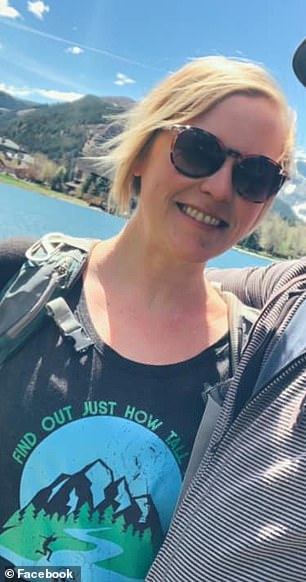
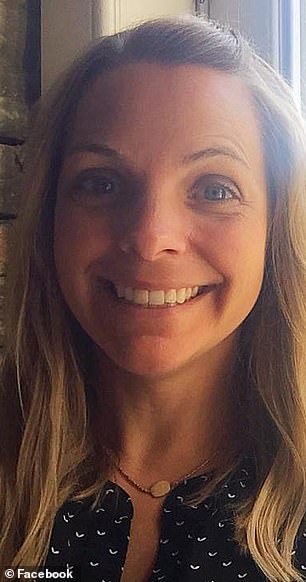
Katy Mathes, 37 (left), from Colorado, tested positive for a genetic mutation for the BRCA gene in 2015 as did her sister, Tricia Leigh (right). The gene carries an increased risk of developing breast and ovarian cancer
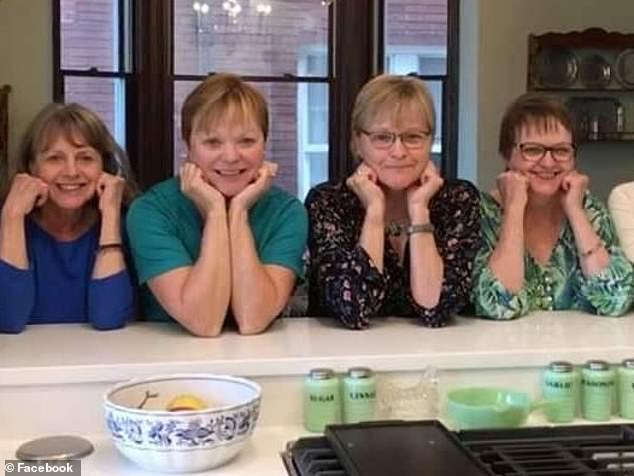
Thirteen members of Mathes’s family were tested and 11 tested positive. Pictured from left to right: aunt Nancy Thyfault, mom Jane Setchell, aunt Carol Larson and aunt Judy Gaebler
Mathes, 37, told The Wall Street Journal that she wanted to know her genetic cancer risk due to a family history of her cancer.
Her mother had battled – and beaten – breast cancer at age 49 and her aunt had tested positive for a gene mutation.
In August 2015, she did her testing with Myriad Genetics Inc, a company that developed and marketed the first BRCA tests in 1996.
Results showed Mathes’s risk of breast cancer by age 70 was 84 percent compared to 7.3 percent for the general population.
And for ovarian cancer by age 70, she had a risk up to 27 percent in comparison with 0.7 percent in the general population.
‘I treated my test results like the Bible,’ said Mathes, an elementary school teacher in Colorado, told the newspaper. ‘There was no questioning the report.’
Between five and 10 percent of all breast cancers are believed to be hereditary and are passed down from generation to generation, according to non-profit Breastcancer.org.
The majority of hereditary breast cancers are due to mutations in two genes, BRCA1 and BRCA2.
Everybody has these genes, which repair damage to cells and inhibit abnormal cell growth.
The average US women has a 12 percent chance of being diagnosed with breast cancer in her lifetime, Breastcancer.org says.
However, women who have one or both BRCA mutations have at least a 70 percent risk of developing breast cancer.
Additionally, around 45 percent of women with the BRCA1 mutation and about 20 percent of women with the BRCA2 mutation will develop ovarian cancer by age 80.
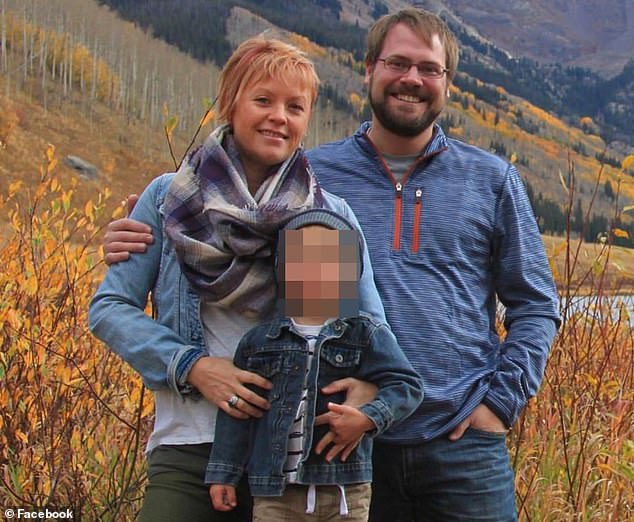

Mathes and her sister had both breasts, their ovaries and fallopian tubes removed. Pictured: Mathes, left, with her husband and son
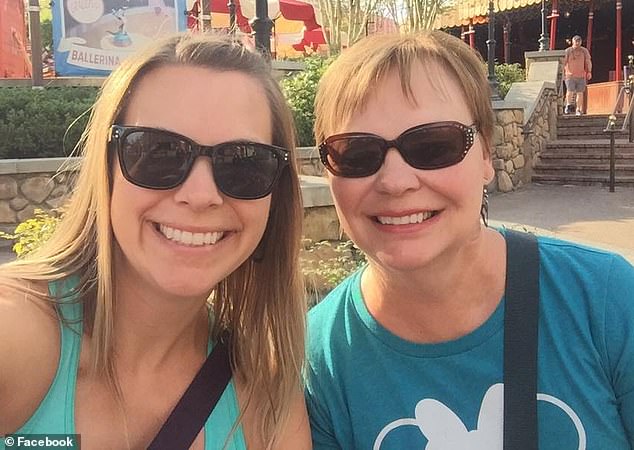
Their mother, cousin and three aunts just had surgery to remove their ovaries and fallopian tubes. Pictured: Mathes’s sister Leigh, right, and her mother Jane, left
Thirteen members of Mathes’s family were tested including her mother, sister, aunts and cousins.
Eleven, including Mathes, carried the BRCA2 mutation.
Mathes’s mother, Jane Setchell, and three aunts had their ovaries and fallopian tubes removed, reported The Wall Street Journal.
‘I felt we had been dealt a tragic blow from which we could only survive by fighting back,’ Setchell said. ‘That fighting back meant we had to have the surgeries.’
Mathes and her sister, Tricia Leigh, said they both struggled with the decision to undergo preventive surgeries.
However, they feared passing on the mutation to future children.
So both women removed their ovaries and fallopian tubes and decided to undergo a double prophylactic mastectomy, which is a surgery to remove both breasts.
This is the same procedure Angelina Jolie had after learning she also had the BRCA1 mutation, putting her at risk of ovarian and breast cancer.
Her mother, Marcheline Bertrand, died of ovarian cancer in January 2007.
Mathes suffered several complications because of her mastectomy. She was in pain and unable to hold her son or put chairs on top of her students’ desks at the end of the day, reported The Wall Street Journal.
Additionally, the incision on her left breast wouldn’t stay closed and she entered early menopause from having her ovaries removed.
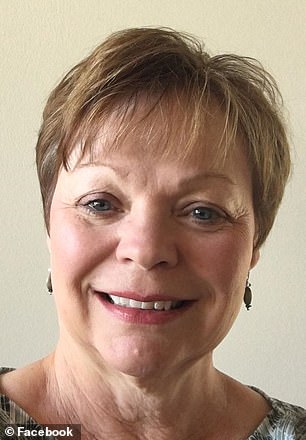
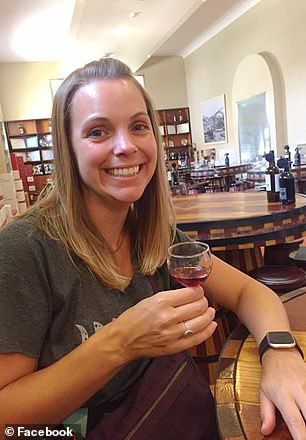
In 2019, a genetic counselor told the family that the gene mutation they had didn’t significantly increase the risk of cancer. It means none of the women likely need to undergo their surgeries. Pictured: Mathes’s mother Jane, left, and sister Leigh, right
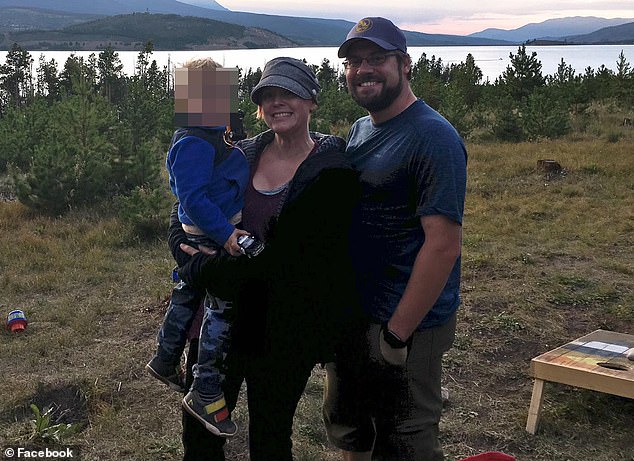
Mathes’s previous risk of breast cancer was 84 percent, but the risk with the new test is 21 percent. Pictured: Mathes (center) with her husband (right) and son
Earlier this year, Mathes’s mother told her two daughters a genetic counselor from Myriad had called.
The laboratory said the BRCA variant the family had went from a classification of ‘harmful’ to ‘unknown significance’.
According to The Wall Street Journal, a genetic counselor said that the 84 percent risk of cancer to anyone with a positive BRCA result.
Results were not adjusted for specific mutations or variants. As many as 38 people have the same variant as the family.
Mathes’s risk of breast cancer has now been lowered to 21 percent.
”I went from very high risk, 84 percent, to nothing,’ Mathes told CBS News.
‘It really felt like I was doing something for my family. I needed to do these surgeries to save them. And then, just the reality that I didn’t need to do any of that was really heavy.’
